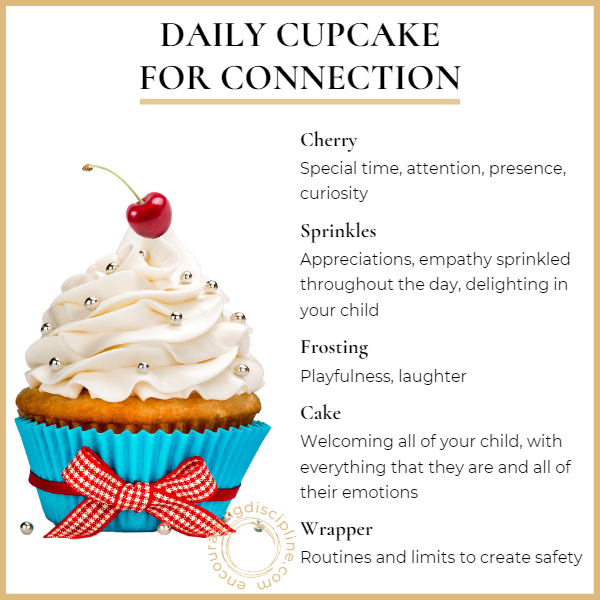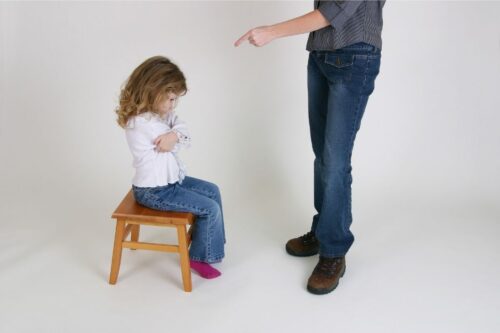What to Do When Your Kids Ignore You
I got an email from one of our readers wondering what she can do when her kids ignore her. I thought this was a really good topic to discuss here because it is very common in parenting.
Table of Contents
Letter from our reader:
“How do you react when your kids ignore you and continue talking to each other and laughing when you ask them to do something? It generally happens at night when I ask them to brush their teeth, check their backpacks for the next day, and just go through the whole evening routine before bedtime.
And it’s not just evenings. Just the other day we were at a gas station and I asked them to cooperate with me because we were going inside, it was kind of crowded and I wanted to be able to get out of there as soon as possible. They agreed and were pretty good until we got back to the car. Once we were in the car, the kids started fooling around instead of buckling in and didn’t seem to hear me until I yelled at them.
It’s very frustrating and I hate raising my voice. I just don’t know what to do.”
Chrissy, mom of 7 and 9-year old
Chrissy, thank you for your message. I can very much relate to what you are describing. And I am sure there are many other parents who are wondering what to do when their kids ignore them. Your challenge is by no means unique. I hope this helps you feel less alone and instead realize that you are part of a big community of parents who are going through similar experiences every day.
Secondly, I am so sorry that you ended up yelling at your kids. I can tell you feel bad about it and it’s something that you want to avoid in the future. I hope this article will help with that.
It sounds like maybe you have inadvertently trained your kids into the bad habit of ignoring you until you raise your voice. But don’t worry, you’re not alone. Most of us, at least at some point in our parenting, have gotten into this trouble :). The good news is that it can be corrected.
When your kids ignore you, you may think they don’t value or care about you, and you may feel disrespected, unvalued, helpless, and powerless. But this is a trap. Please try to resist falling into it.
When we take things personally and make everything about us it’s a sign we may have some hidden beliefs or wounds that are interfering with our ability to remain neutral and rational in a given situation. You might want to explore this through journaling, a listening partner, or your therapist if you see one.
Instead of feeling hurt and small when our kids ignore us, it’s always a good idea to bring curiosity and reflection. Knowing the cause behind our kids’ behaviors can help us figure out where to focus our efforts.
So let’s explore a little the reasons why our kids don’t listen.
Reasons why kids ignore us
Anytime kids ignore us, it’s an indication that their threat system has been activated. When this happens, they may withdraw or rebel. To us, it may look like ignoring or defiance.
Our first reaction is to want to change their behavior. But we would only be putting a band-aid over the symptom. If we want to really fix the problem, we need to investigate the reasons that are causing it.
There are three main reasons why kids ignore us: a broken connection, lack of autonomy, and inadequate routines.
1. Check your connection with your kids
Many times when a child doesn’t listen, it can be a sign of a ruptured connection. There are many ways to repair our connection with our kids. I will describe a few here.
Time
Have you had enough time with your child lately, when you were fully present, giving them your full loving attention? Or have you been busy or distracted? When our connection is low, kids tend to not listen.
If time to connect has been lacking, you want to begin by investing more time to rebuild that connection.
One way to repair our connection with our kids is to begin Special Time with them. Special Time sounds intimidating, but the point is to make kids feel special. We give them our full attention, we follow their lead, and we delight in them for a certain amount of time.
I describe in detail how to implement Special Time in this article: How to Get Better Behavior With Special Time.
Besides Special Time, make sure you spend enough meaningful time with your child, beyond what’s required to manage day-to-day life.
Attention
When we are with our kids, it’s important to give them our full attention. Our presence communicates to our children that we care, that they matter, and that they are an important part of our lives.
So try to put away distractions when you talk to your child, ask them questions about themselves, and be curious about who they are, what they’re learning, and what they’re struggling with.
Respect
Using a respectful tone of voice is essential to helping kids feel valued and worthy. Yelling is never respectful. And we don’t like to be yelled at. Our kids don’t either.
But we’re human and we may lose our control occasionally. In that case, it’s important to apologize and try to repair the damage. And in general, we must strive to watch the tone we use with our kids.
However, if we are getting frequently triggered, it’s a sign that we have some unmet needs or old wounds that need to be examined.
If you notice that you’re having a really hard time keeping your reactions under control, please consider getting the help of a therapist who can support you in unpacking and healing your triggers, as well as private parent coaching where you can develop more strategies to build up your parenting toolbox.
2. Do your kids have enough power and control over their lives?
Being a kid means that a lot of your life is organized and managed by adults. And this can feel suffocating at times. Especially as kids grow, they need to have increased autonomy and responsibility. We have to gradually release our control and teach them how to take the reins of their own lives into their hands.
This is not always easy though. Oftentimes it is easier and more efficient to do things ourselves. But the problem is that our kids begin to feel incapable and helpless. It is not a good feeling to have. Instinctively, they know they need to be prepared for life. And if we’re not building our kids’ capacity, their inner wisdom drives them to seek autonomy and power, sometimes in misguided ways.
So begin sharing power and control by:
- offering kids limited choices
- involving them in problem-solving and decision-making
- teaching them life skills
- and allowing them to help in everyday activities that prepare them for life.
I know that sometimes this can be frustrating and time-consuming, but our purpose is to make our jobs obsolete. We want our kids to become independent, able to solve problems on their own, resourceful, and capable. The only way to do that is to teach them skills and offer them plenty of practice under our guidance.
This takes a tremendous amount of time and patience. But our kids are counting on us.
3. How solid are your routines?
Kids thrive on routines and let’s be honest, so do we. Having a clear, established routine helps us to do things automatically and reduces the mental load required to complete a task.
So make sure your routines are clear and your kids are well-trained.
Have routines for different parts of the day
Most parents are familiar with a bedtime routine. But there are many routines we can create, not just for bedtime.
You can have all kinds of routines for getting in the car, going to the store, visiting someone, getting ready in the morning, etc. Routines are basically a set of steps we follow in a particular order (but not always) to help us complete a task.
Revisit routines often
Even after you’ve had a routine in place for a long time, it helps to revisit the steps with your kids occasionally, to refresh their memory. And sometimes, as kids grow, some routines may need to change or be tweaked to tighten them up a bit.
Every now and then, when we haven’t used a routine for a while or if I think my kids seem not to follow our family rules and routines as well, I do a quick refresher with them. This ensures better follow-through. It goes something like this:
“Ok, kids. Let’s see if you remember what we need to do when we go to a birthday party. What’s the first thing we do when we get there?”
After they give you an answer, follow up with, “Good! Next, what do we do?”
To jog their memory, you can ask other questions, such as, “What do we want to make sure we don’t forget to do?” Or “How many things do we have to remember?”
And so on. You continue until you finish listing all the expectations.
Brainstorm together to get their buy-in
It’s a good idea to explain to the kids why each step is important and to ask them what they think about those steps. Do they agree with them, would they add other steps?
By engaging them to think critically, we get their buy-in and they’re more likely to follow through. Sometimes, as you’re trying to engage them in these conversations, they may give you silly suggestions. In that case, play along and ask them to think about what would really happen if you introduced that step into your routine.
So when your kids ignore you, don’t rush to control and increase the power struggle. Instead, begin by being curious to discover the need behind the behavior and address it at the core.
What to do when your kids ignore you
Now let’s see specifically how you can handle situations when your kid or kids ignore you again.
I will give you some tools that you can use in the moment, things to do after the incident, if it devolves into a power struggle, and some suggestions for how to prevent this from happening.
1. Interventions in the moment
When your kids ignore you and don’t listen, it can be very triggering. And you have to admit, it happens when you are generally tired or stressed or in a hurry. Do you agree?
So the first thing we need to do is observe our bodies. They have a wisdom that communicates to us when something isn’t right. It’s important to pay attention to these messages and to decode them correctly.
Protect your calm
When we notice tension building up in our bodies, instead of clenching our fists and gritting our teeth, and pushing even harder, it is more helpful to release this tension.
To illustrate what I mean, try this exercise: ask a friend or your child to hold their hands up and push against yours. As you are doing this, notice that the harder your partner pushes, the harder you push. But then, pull your shoulders back and let go. You will notice that the tension is gone and the whole dynamic between you two changes.
So when your kids ignore you and you notice yourself wanting to push harder, remember this exercise. Close your eyes, take a long, slow breath, and relax your body.
Now, try some of these ideas:
Proximity
This is a very effective strategy.
When kids ignore us, it can be that they are distracted or too far, and simply not able to hear us. If we are out of their zone of perception, it helps to get in their faces, so to say. So, go up close, look them in the eyes, make sure they are also looking at you, and then make your request or remind them of what they need to do.
Be playful
Sometimes, I like to have fun with the previous step. I get in front of my kids and I make a goofy face, staring at them. They think it’s hilarious and I am guaranteed to get their attention.
Lower your tone of voice
Especially when kids are used to paying attention only when we yell, it helps to try the opposite.
Again, while getting up close, tell them what they need to do in a lower tone of voice. This change in the level of decibels in the room will help their brains to focus on you.
Describe what you see
The secret to using this tool is to eliminate all evaluative language, accusations, or blaming from the conversation. Imagine that you are a sportscaster describing a game.
“You two are laughing and talking. I’m noticing your seat belts aren’t fastened.”
You can follow this one up with our next tool:
Ask what the next step is
“What did we agree that you would do after we got into the car?”
Or you could ask, “What’s the next step to do after we get in the car and before we leave?”
One word
Sometimes less is more. Instead of using two sentences to remind your kids what to do, you can use one or two words.
“Seat belts.”
What’s up?
This is a strategy developed and taught by Dr. Ross Greene and it’s especially effective with slightly older kids, like yours. What I like about this tool is that it transfers more responsibility onto the kids and it builds a collaborating relationship between parents and kids.
First, you state the expectation, then you describe what you notice, and finally, you ask for the child’s input.
For example: “By 9 pm you should be in your pajamas and your teeth should be brushed. I’m noticing you haven’t started on any of those. What’s your plan?” Or instead of “What your’s plan?”, you could ask Dr. Greene’s favorite question, “What’s up?” What this means is that you are asking the kids to explore what’s getting in the way of them meeting the expectation.
Scaffold transitions
Many kids struggle with transitions. Change isn’t easy for any of us. Transitions are unpleasant and hard.
For this reason, it’s essential to prepare kids for any transitions and offer support through them if needed. This may look different depending on each child. You know your kids best and it may take some trial and error to see what they respond to best.
Before the transition
Ahead of time, you want to communicate to your kids what comes next. Remind them of what will happen and how it will happen.
This is something that you want to get in the habit of doing pretty often, especially with younger children. And I would invite you to be very specific about every step that kids have to do. You can tell them the steps and then have them repeat them back to you.
“All right, kids. Here’s what we’re going to do. We walk into the gas station, use the bathroom, wash our hands, buy water, and then walk straight to the car.” I like to put up my fingers while I’m listing things for my kids. Then I point out that there are three, four, or five items to focus on.
Then you continue: “So we have five things to do. Let’s see. What’s the first thing we do?” Wait for them to tell you what that is. “Great! What’s the second?” And so on. Try to make it dynamic and fun so they’re more likely to give you their attention.
If they can list the things to do to you, then you proceed with your plan.
During the transition
Sometimes, kids need help getting through a transition. Here are some examples of how we can support them:
- play some music
- sing a song
- remind them of the steps
- talk them through the steps of the transition
- distract them with some conversation, such as talking about what will happen once you’re past the transition, and so on.
You can try a few of these ideas when your kids ignore you, to see which ones they respond to the best. But avoid repeating yourself multiple times. Repeating yourself will only cause you to become more triggered. At least that’s the case for me.
Remember it will take time to train or retrain your kids to not ignore you when you talk to them. So have patience and offer them plenty of practice and feedback.
2. Troubleshoot after the incident
Sometimes when kids ignore us, we are triggered and end up not being on our best behavior :). We say or do things that we may regret later. And we know we contribute to an escalation of the situation rather than helping to defuse it.
There are two things that I try to do when this happens. One is to repair the relationship with our children and rebuild their trust in us. And the other is to teach and make a plan for the future.
Repair the relationship
If you yelled at your kids, it’s a good idea to apologize without blaming your reaction on them. “I’m sorry I yelled at you. I will work on controlling my reaction next time.”
The repair doesn’t need to be something complicated. What’s needed of us is to be sincere, and present, and to do our best to follow through on our promise to try to avoid being disrespectful in the future.
Make a plan
After an incident that didn’t go too well, we can spend some time teaching our kids about the importance of respecting our family values, routines, and decisions. And then, we can make a plan that will help everyone be successful at meeting these expectations.
I like to ask my kids, “What would help you to be successful next time?” And also, “What can I do to support you in succeeding?”
Usually, my kids are very certain they will manage by themselves in the future, but I tell them it’s a good idea to have a backup plan, just in case, because my goal is for them to be successful and to avoid everyone feeling annoyed and frustrated.
After we discuss what will help them meet the goal, we also decide together what will happen if they are still not able to do what we agreed on. Sometimes we need to change our expectations and sometimes we need to change the supports that we give to our kids to help them meet the demands.
For example, if our expectation is that our child behave a certain way for two hours while we’re on a visit to grandma’s and they start acting out after an hour, then maybe our visit needs to be concluded at that time. We can try to increase the length of our visits when our kid is a little older.
So the way we communicate that to our child at the “make a plan” stage is, “If you still are having a hard time sitting at the table after (insert what you decided together), then we leave.”
By making a mutual agreement, kids are more likely to follow through.
3. Prevention
Good prevention is always better than patching up broken pieces.
And the best way to prevent future power struggles and conflicts and to decrease the chance that our kids ignore us is to work on our connection and set up some solid routines.
Increase connection
When our connection is strong, our kids have a better incentive to follow our lead. When our connection falters, they show us by ignoring us or becoming defiant. This is equivalent to their fight and flight responses.
There are many ways to increase our connection with our kids. And while it sounds simple, it can be tiring. in short, what our kids need is for us to be present with them. They need our time, our full, undistracted attention, they need us to delight in them and to show them that we are interested in who they are.
When your kids begin to ignore you, you can get pretty quick results with Special Time. I wrote an in-depth article on Special Time where you can learn all about how to implement it. You can access it here: How to Get Better Behavior With Special Time.
However, Special Time is not the only way to increase connection. Playfulness, laughter, appreciations, curiosity, and welcoming all emotions are all important parts of building a strong connection with your child.
Multiple small, authentic interactions sprinkled throughout the day are the best way to sustain the connection. Here’s a little graphic that I put together to help you remember how to increase connection when your kids ignore you.

Create routines
Routines are important for making our lives run more smoothly. Kids know what to expect, and there is less anxiety and the need to make decisions on the fly. Routines create a sense of safety.
So it’s helpful to spend plenty of time creating routines and practicing them often. It’s also a good idea to reevaluate them periodically and make changes if necessary.
As with any decision, kids are more likely to follow the routines if they participate in creating them.
If your kids have had enough time practicing a routine, it simply becomes a habit, something you automatically do. Then, when you remind your kids of what’s expected of them, there’s a lesser chance of pushback and they are more likely to follow through.
Conclusion
Generally, when kids ignore us, we feel angry, challenged, threatened, defeated, and helpless. We tend to become more rigid and controlling. However, the solution is not to coerce, but rather to explore and rebuild.
The one thing I would like you to take away is that when your kids ignore you, it is always a symptom of something that’s off in themselves or your relationship that needs to be addressed. It is never about you directly.
Every time your kids ignore you, you can get their attention in a confident, kind, and respectful manner.
If you lose your cool, which may happen occasionally, because you are human, you can repair and make a plan for the future.
And finally, you can work on prevention by strengthening your connection with your children and establishing solid routines.
I hope these tools will help to reduce the chance that your kids ignore you. Please leave me a comment to let me know what worked well for you and what didn’t.







